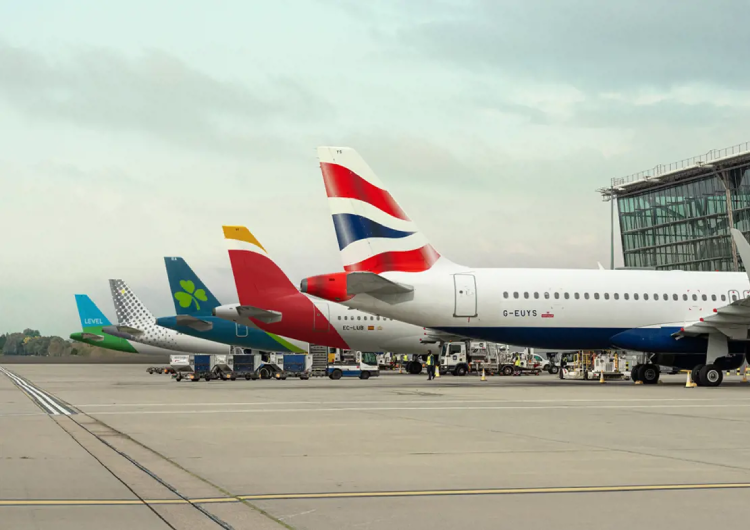International Airlines Group (IAG) has reached an agreement with the multi-energy company Repsol for the purchase and supply during the next six months of more than 28,000 tonnes of sustainable aviation fuel (SAF). The SAF provided by Repsol will be used by the IAG airlines flying from Spanish airports, including Aer Lingus, British Airways, Iberia, Iberia Express and Vueling.
This agreement represents the largest voluntary purchase of SAF made to date in Spain. With this supply IAG advances in its commitment to the decarbonisation of its activity, getting the Group closer to the use of 2% of SAF in 2025 as established by the ReFuel EU regulation. SAF allows an emissions reduction of more than 80% compared to traditional jet fuel in terms of net CO2 life cycle emissions, from production to consumption. IAG, as with all its SAF purchases, ensures that the SAF purchased complies with strict sustainability certification standards.
This year Repsol has begun to produce 100% renewable fuels at its facilities in Cartagena. The plant, the first large-scale plant in Spain and Portugal dedicated exclusively to the production of 100% renewable fuels and in which Repsol has invested 250 million euros, has a production capacity of 250,000 tonnes per year and can produce renewable diesel and SAF from waste.
Luis Gallego, CEO of IAG, said that: “Sustainability is a priority for IAG and is one of the pillars on which we base our strategy and transformation. We are working intensely to secure our future SAF needs and comply with our commitments, which are more ambitious than what is established by EU legislation. However, it is important that governments continue to support the development of a SAF industry that increases its availability and reduces its price. Developing a European SAF industry has the potential to generate thousands of jobs and will make an important contribution to GDP.”
Josu Jon Imaz, CEO of Repsol, said that: “This agreement with IAG, one of the largest airline groups in the world, consolidates our commitment to 100% renewable fuels as a key lever for the decarbonization of transport in Spain. The aviation sector needs solutions such as sustainable aviation fuels and, at Repsol, we are prepared to supply them through our 100% renewable fuels plant in Cartagena.”
IAG a leading sustainability group in the aviation industry
IAG was the first airline group in the world to commit to net zero emissions by 2050. In addition, it was the first European group to set the goal of covering its fuel needs with at least 10% of SAF by 2030.
These commitments have materialized in concrete actions. As of 31 December 2023, IAG’s investments in SAF reached $1 billion, of which 86% are future commitments. As of the end of February, IAG has already secured a third of the SAF required to meet the objective of 10% of its fuel being SAF in 2030.
In 2023, the group’s airlines used more than 53,000 tonnes of SAF, which was an increase of 417% compared to 2022 and represented one of the highest volumes in the world. The use of this SAF reduced net emissions of more than 157,000 tonnes of CO2. This emissions reduction was complemented with operational efficiency initiatives that made it possible to avoid another 86,000 tonnes of CO2.
IAG and Repsol: pioneers in the decarbonisation of Spanish aviation
IAG’s airlines in Spain and Repsol have been collaborating on the decarbonisation of air transport for several years.
In 2021, Iberia carried out the first flight in Spain with biofuel produced from waste. It was on the route between Madrid and Bilbao and sustainable fuel produced at the Petronor refinery was used. A year later, Iberia operated, in collaboration with Repsol, its first long-haul flights with this biofuel in routes from Madrid to Washington, San Francisco and Dallas. Both companies are part of All4Zero, the industrial-oriented technological innovation hub focused on the development of technologies for decarbonisation and the circular economy.
Also, in 2021, Vueling carried out its first flight with fuel of sustainable origin on the route between Barcelona and Seville. In this case, with a SAF produced from biomass at Repsol’s Tarragona Industrial facilities. Last February, in the context of Malaga Film Festival, Vueling operated a flight between Barcelona and Malaga in which 50% of the fuel used was SAF provided by Repsol.
Repsol is a pioneer in Spain in the production of renewable fuels for all transport means, including aviation. With the production of this type of fuel in its industrial facilities, Repsol has anticipated the regulation from European Union established to promote the use of SAF.
The objective of the multi-energy company is to reach a production capacity of up to 1.7 million tonnes of renewable fuels in 2027 and up to 2.7 million in 2030, leading this market in the Iberian Peninsula.



